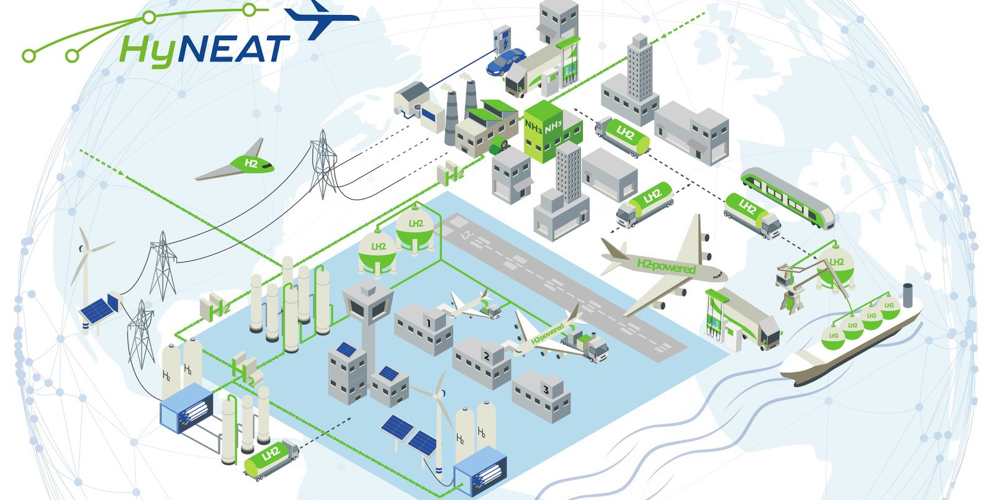Project ‘HyNEAT’ to examine hydrogen supply networks for air transport
The joint project ‘HyNEAT – Hydrogen Supply Networks’ Evolution for Air Transport’ will be researching supply networks for hydrogen-powered aviation over the next three years. The focus is on green hydrogen and its cost-effective production and transport.
The project is funded by the German Federal Ministry of Education and Research with about three million euros and is a joint project of Leibniz Universität Hannover and the Technical Universities of Braunschweig, Clausthal and Hamburg.
In the statement, the University of Hanover describes propulsion systems based on green hydrogen for larger commercial aircraft as “a promising alternative for more climate-friendly aviation”. In order for these propulsion systems to pay off in operation, a corresponding hydrogen infrastructure is also necessary that “enables competitive costs for the operation of the new types of aircraft”.
This is precisely the challenge that ‘HyNEAT’ addresses: The researchers want to investigate what both global and local supply chains could look like. Specifically, the question is raised “whether and in which countries renewable energies will be sufficiently available in the future and where international supply relationships should be established”. Care should be taken “to ensure that this also takes place in harmony with the overall energy transition and design of aviation networks”. How a global hydrogen supply chain should differ from that for green industrial hydrogen or for road transport is left open in the communication.
On the other hand, the regions that are to be examined in more detail are already named. “Due to the large potential for renewable energies and the therefore cost-effective production of green hydrogen, several countries – such as in North Africa or the Middle East – are predestined to supply hydrogen to the aviation industry. Thus, local renewable energy supply systems in exporting countries could also benefit from the development of hydrogen infrastructures. HyNEAT aims to examine the role of selected regions, also outside Europe, in supplying hydrogen to the aviation industry,” the statement says.
To ensure that the research work of the four universities has the necessary practical relevance, ‘HyNEAT’ is accompanied by a renowned industrial advisory board. According to the statement, this includes Airbus, Deutsche Aircraft, MTU Aero Engines, Lufthansa Group, German Aerospace Centre, Flughafen Hamburg GmbH, Flughafen München GmbH and FMO Flughafen Münster/Osnabrück GmbH, Linde GmbH, Siemens Energy, EWE, the Africa Association of German Business and McKinsey & Company.





0 Comments